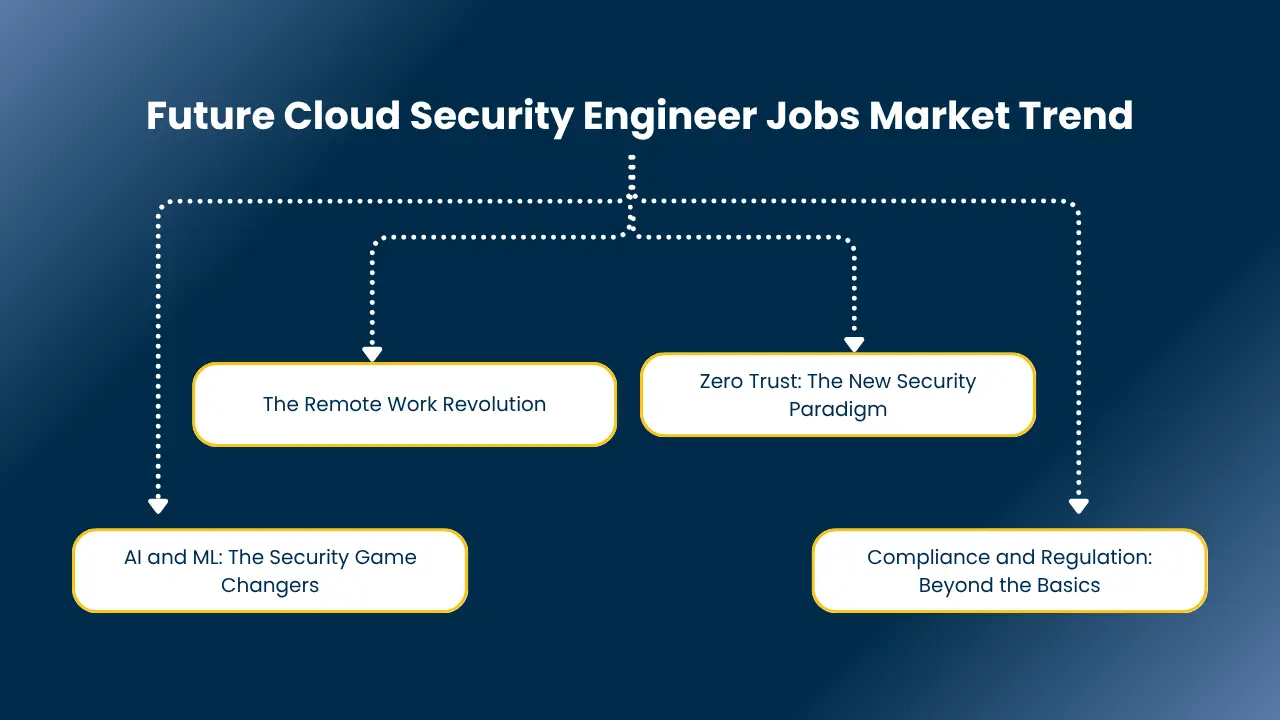How to Become Cloud Security Engineer After cPent Certification

In this era of advanced technology, cloud computing has emerged as the foundation for numerous businesses, providing scalability and flexibility. But this expansion has always been accompanied by the looming fear of cyber threats. That’s where cloud security engineers come in, as the protectors of these cyber strongholds. Therefore, if you are interested in this high demanding field, you must get your CPENT certification. The skills that you will gain with this certification it will include advanced penetration testing and vulnerability analysis.
In this blog, we will discover the process of evolving from a CPENT-certified professional to a cloud security engineer in demand. We will explore the necessary skills, roles, and career paths, particularly aided by Orbus Cybersec Trainings.
Who is a Cloud Security Engineer?
Cloud security engineers are the specialists who protect cloud systems and data from cyber attacks. These individuals, deploy, and manage security controls. They ensure data security and regulatory compliance. Cloud security engineers understand cloud architecture and security policy. It proactively secures organizational assets on a routine basis. Furthermore, they are architects who build robust defenses against new forms of cyber attacks. It allows companies to do business securely in the cloud. They are the ones who ensure that your information is secure and sound.
Key Roles and Responsibilities
Cloud security engineers are the first line of defense for cloud-based digital property. Their technological expertise guarantees information integrity and secrecy. It helps protecting from evolving cyber dangers.
1. Design and Implement Security Controls
Cloud security engineers design cloud architecture in advance. They repel attacks on applications, data, and infrastructures while being proactive regarding security.
2. Conduct Risk Assessments
They sensitively identify weaknesses by conducting strict risk assessments. Further, they draw up strategies to counter impending dangers.
3. Ensure Compliance
They keep cloud infrastructure and procedures in accordance with industry standards and regulations, regularly auditing and updating.
4. Monitor and Manage Security
They continuously monitor the cloud environment. Additionally, they proactively asses, audit, and utilize advanced tools to remediate threats.
5. Collaborate and Educate
They collaborate with teams, educating them on cloud security best practices and fostering a security-conscious culture.
Cloud Security Engineer Requirements in 2025
A cloud security engineers needs technical skills, certifications, and real-world experience to successfully safeguard cloud environments.
1. Required Skills and Knowledge
The need for competent cloud security experts is on the rise. You will need knowledge of leading cloud platforms (AWS, Azure, GCP), intimate knowledge of security regulations (PCI DSS, HIPAA), and good networking knowledge (firewalls, IDS/IPS, VPNs). Knowledge of programming languages such as Python and Java is essential to create secure cloud infrastructures. Skills in incident response and forensic investigation are necessary to remediate threats. And let’s not forget soft skills – effective communication and collaboration are indispensable. In addition, obtaining cloud security engineer certification such as CPENT will serve to give you a foundation to become a Cloud Security Engineer. Orbus Cybersec Trainings offers the training to assist you in obtaining the CPENT certification.
- Cloud Platform Skills: AWS, Azure, and GCP proficiency for successful security deployment.
- Regulatory Awareness: Knowledge and compliance with PCI DSS, HIPAA, and other regulations.
- Networking Skills: Strong understanding of firewalls, IDS/IPS, and VPNs.
- Programming Skills: Python and Java skills for secure cloud development.
- Incident Response: Security gap analysis and threat remediation capability.
- Soft Skills: Good communication and teamwork.
2. Relevant Tools
Cloud security engineers use a variety of tools to secure and manage cloud environments.
- AWS (Amazon Web Services): For on-demand cloud computing, storage, and database services.
- CloudHub (MuleSoft): For application integration and API management.
- Chef: For infrastructure configuration management.
- Microsoft Azure Cost Management: For cloud usage analysis and cost optimization.
Also Read: Penetration Tester Salary in India 2025 – Earnings & Career Path
Cloud Security Engineer Salary Region by Country
Cloud security engineers are in high demand, and their expertise is reflected in their competitive salaries. As businesses increasingly rely on cloud infrastructure, the need for skilled professionals to protect these environments grows, driving up compensation. Several factors influence a cloud security engineer’s earning potential, including education, experience, and specialized skills. On average, you’ll find salaries vary significantly by region. Here’s a glimpse into the professional cloud security engineer salary in India and average annual salaries for cloud security engineers across different countries:
| Country | Annual Salary |
|---|---|
| India | ₹15,00,000 |
| Malaysia | RM 63,600 |
| Germany | €65, 463 |
| France | €50,000 |
| New Zealand | NZ $136,000 |
| Brazil | R$ 118,000 |
| Canada | C$ 99,619 |
| South Africa | R 662, 826 |
| Switzerland | 131, 000 Fr. |
| Spain | € 62,273 |
| Australia | $139,000 |
| Mexico | MX$ 62,000 |
| United Arab Emirates | AED 170,000 |
| Netherlands | € 60,000/td> |
| Saudi Arabia | SAR 142,000 |
How to Begin a Career as a Cloud Security Engineer with Orbus?
A career in cloud security engineering begins with a strong background in penetration testing in cyber security fundamentals and hands-on expertise. Orbus Cybersec Trainings offers an exclusive route, beginning with the well-respected CPENT certification, which can be a solid stepping stone to the cloud security field. Here’s how you can use Orbus Cybersec’s training to begin your journey:

1. Master Essential Cybersecurity Skills with CPENT
- CPENT certification gives you in-depth penetration testing skills, an essential part of knowing and preventing cloud vulnerabilities.
- Orbus Cybersec’s practical training gives hands-on experience that helps you to detect and fix security vulnerabilities, a skill that is easily translatable to cloud security environments.
- Learning how to find vulnerability leads one to be able to prevent it.
2. Establish a Solid Security Foundation
- Use CPENT training as the foundation to comprehend security fundamentals, networking, and system administration that are all key to cloud security.
- Orbus Cybersec Trainings gives a foundation that understands how threat agents operate, hence giving the learning required to enable the securing of cloud environments.
3. Add Cloud-Specific Knowledge
- Having a firm cybersecurity foundation by CPENT, then learn the cloud-specific technologies such as AWS, Azure, and GCP.
- Marriage your CPENT skills with cloud certifications to showcase an end-to-end understanding of security in traditional and cloud environments.
4. Gain Practical Experience
- Practically apply your CPENT skills to cloud security scenarios via labs, projects, and simulations.
- Look into cloud security related workshops.
5. Keep Learning and Networking
- The field of cloud security is ever-changing. Keep abreast of current trends and technologies.
- Keep networking in the cybersecurity community.
Orbus Cybersec Trainings equips you with the essential skills and qualifications to kickstart a thriving career in cloud security engineering. Utilizing their CPENT training, you’ll become equipped with the hands-on skills necessary to defend cloud environments from emerging cyber attacks.
Future Cloud Security Engineer Jobs Market Trend
The cloud security environment is undergoing a fast transformation, fueled by technological innovations and changing work patterns. To remain competitive, cloud security engineers have to keep up with these crucial trends:
1. The Remote Work Revolution
- The surge in remote work has amplified the need for robust cloud security.
- Cloud security engineers are now vital in ensuring secure access and data protection for distributed workforces.
- Organizations need to ensure their cloud infrastructure is secure, no matter the location of the employees.
2. AI and ML: The Security Game Changers
- Artificial intelligence (AI) and machine learning (ML) are transforming cloud security.
- These technologies power threat detection and predictive analytics, enabling engineers to anticipate and protect against sophisticated attacks ahead of time.
- Cloud security engineers are leveraging these technologies to discover and block threats more quickly than ever before.
3. Zero Trust: The New Security Paradigm
- Zero Trust architecture is the new gold standard for cloud security.
- Engineers need to introduce continuous verification and strict access controls to authenticate and authorize every request.
- In effect, never trust, always verify.
4. Compliance and Regulation: Beyond the Basics
- Penetration testing companies are focusing on protecting data and meeting strict regulations.
- Cloud security engineers have an important role to play in performing complete audits and adopting strong security protocols.
- Exceeding the norms is not only desired but expected by companies.
Conclusion
It is not an easy path, but it is highly rewarding to become a cloud security engineer. As the cloud environment continues to change, the need for competent professionals will only increase. By capitalizing on the foundational skills attained through certifications such as CPENT, courtesy of Orbus Cybersec Trainings, you are able to lay a solid foundation for your cloud security professional career. Keep in mind that the CPENT penetration testing certification gives you insight into how to identify vulnerabilities, hence giving you the knowledge on how to avoid them. Add to that a commitment to ongoing learning, and you’re well-prepared to address the intricacies of cloud security. Orbus Cybersec Trainings offers the platforms and information that enable you to make that leap. So come on, grab the challenge with both hands, and become the key player to protecting the world online.
Understand how Orbus can help your career!
Speak with an Expert Now!
FAQ's
Best Tools for Cloud Security Engineer
Cloud security engineers utilize tools like AWS Security Hub, Azure Security Center, and Google Cloud Security Command Center for monitoring, threat detection, and compliance management.
How do you train for a Certified Cloud Security Professional (CCSP) certification?
CCSP training involves studying official materials, taking practice exams, and potentially enrolling in specialized penetrating testing courses to cover cloud security architecture and design.
What is the best way to learn Cloud Security?
A combination of online courses, hands-on labs, and practical experience with cloud platforms like AWS, Azure, and GCP provides the best learning path.
Which certification is best for network security engineer?
Certifications like CompTIA Security+, Certified Network Security Specialist (CNSS), or Cisco CCNA Security are highly regarded for network security engineers.
How do I become a network security engineer?
Gain a strong foundation in networking, security principles, earn relevant certifications, and build practical experience through internships or entry-level positions.





